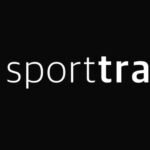
If the MLB and NBA have their way, the Colorado Rockies and Denver Nuggets could experience immediate benefits from the presence of legal sports betting in Colorado.
The costs of different Colorado sports teams such as the Colorado Avalanche, Colorado State Rams, Denver Broncos, and the University of Colorado Buffs should also increase.
The extent of the impact of that evaluation nudge is contingent upon several factors. In the following weeks, the state will determine the course of action to influence those elements.
Colorado’s professional sports teams’ participation in the legalization of sports betting
Activists from MLB and NBA, among other organizations, will attend the Colorado Limited Gaming Control Commission’s first meeting since the legalization of sports betting in the state.
Additionally, the Rockies will have a legal representative who will advocate for the inclusion of specific principles in the forthcoming requirements set by the CLGCC.
- Legitimate sportsbooks have the potential to pay a direct royalty of 0.25 percent to the leagues based on the total handle.
- A mandate, authorized information, and an ampersand.
Both the NFL and NHL, along with two college athletic conferences, had relatively less influence on those matters. However, they could potentially be incorporated into the final model if deemed necessary.
MLB and the NBA have so far failed to persuade any other states to establish their requested royalties. Nonetheless, they have achieved some progress with the official data mandate. Here, the term «files» pertains to the data utilized by casinos for placing bets.
Both of these requirements imposed by the leagues can be easily interpreted as personal taxes. Furthermore, the justifications for the group receiving either quickly fall apart.
Why is it unrealistic to demand payment for standard and third-party data?
To begin with, it is essential to understand the differences among «and», «official» and «rdqua», and information that is not officially or unofficially verified. The most significant difference lies in the teams’ endorsement.
There is no indication that official information is inherently better than information obtained from alleged illegal sources. Both official and unofficial parties employ similar coverage programs and collection techniques.
The demand for sportsbooks to exclusively purchase data feeds from a single vendor contradicts the principles of an ideal industry. If the leagues’ claim that their standard product is indeed superior holds true, there should be no need for a mandate as buyers will naturally opt for it based on its exceptional quality.
Hence, it appears unwarranted to enforce a requirement for casinos to purchase information from the teams.
Teams will gain from sporting betting on an automatic basis.
The demand for compensation from leagues and royalty has reached an unprecedented level of absurdity. The recurring argument remains that these entities should be entitled to a share of the profits as they bear the expenses associated with producing the games on which sports bets are made.
The flaw in this discussion lies in the fact that legitimate sportsbooks can also argue the same point. The availability of access to the game enhances people’s interest in watching or attending sports events, thereby boosting the income of leagues and teams.
Recently, Jonathan Tisch, a minority owner of the New York Giants, openly expressed the same sentiment. Tisch credited the surge in NFL’s TV viewership to the legalization of sports betting.
Tisch believes that the legalization of sports betting in Colorado will bring benefits to all sports-entertainment companies in the state. However, there are also other ways these companies can gain advantages.
new opportunities for funding and advertising for everyone
Previously, several Colorado teams such as the Broncos have collaborated with daily fantasy sports providers. Similarly, there are even more extensive possibilities for cross-promotion when it comes to sports betting.
The Avalanche or Pac-12 could potentially form a sponsorship agreement with FanDuel, becoming their official sports betting partner. This partnership offers various benefits for both professional sports teams and legal sportsbook operators.
Besides the advantage of increased consumer interest, the ultimate victory they aspire to achieve is a surge in demand for leagues and products.
Sportsbooks that are legitimate and pay the leagues do not have to face regulatory pressure from the government. In Colorado and Quebec, professional sports teams will receive a portion of the profits without being burdened by any potential harmful requests.





